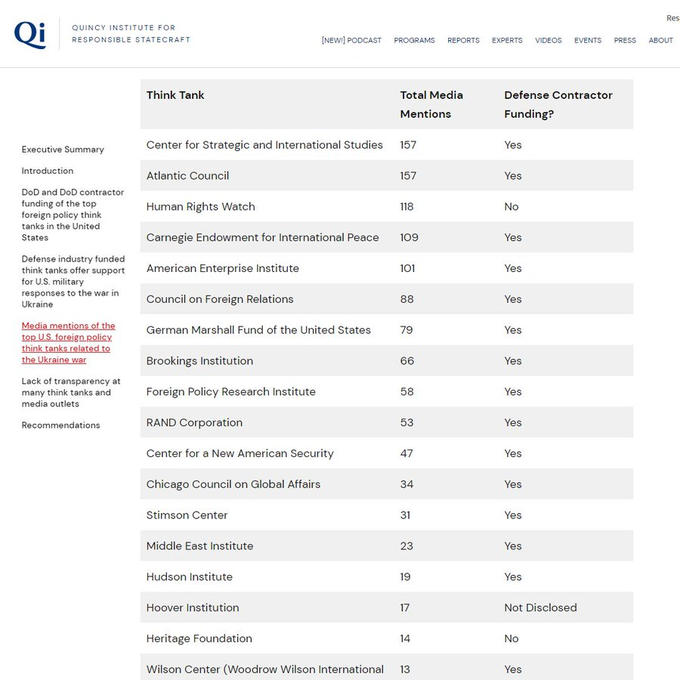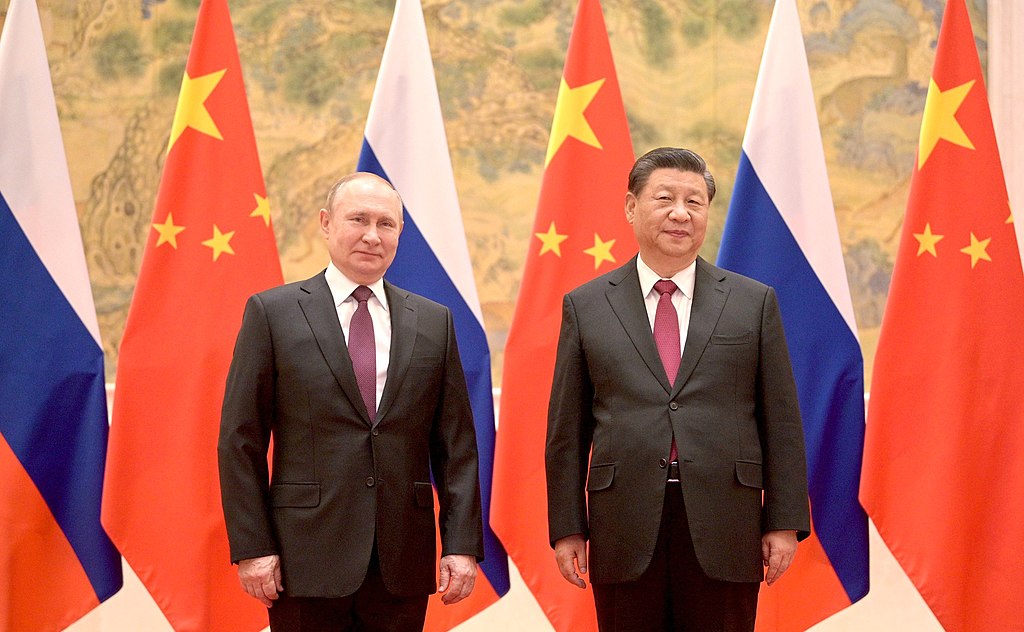A leap toward totalitarianism: Jordan's new cybercrime law takes aim at free speech
Under the pretext of national security, Jordan's new cybercrime law threatens to curb freedom of expression through stringent fines and potential social media platform bans, raising concerns about the country’s descent into totalitarianism.
Alaa al-Fazza
AUG 10, 2023

Photo Credit: The Cradle
The Hashemite Kingdom of Jordan, one of the largest recipients of financial and political support from western countries, is now on a concerning path to join the ranks of totalitarian states. In a bold move, it is rolling out a comprehensive legal framework designed to monitor and manipulate social media.
This intricate system comes packed with provisions that compel social media platforms to conform to the authorities' wishes or face being banned under the new legislation. Moreover, these platforms are required to establish physical offices in Jordan for legal notifications, introducing a precedent that could inspire other states to follow suit.
The law's articles contain harsh penalties for both activists and ordinary citizens. For example, the mere act of posting a comment or content that doesn't align with the authorities' views, fines reaching up to approximately $30,000 await, potentially amounting to five times the average annual income of ordinary Jordanians.
This is an astounding crackdown on freedom of expression that's hard to ignore, highlighted most recently with the court order and arrest of Jordanian journalist Heba Abu Taha on 8 August. Her crime? Jordan's Cybercrime Unit provided evidence she had written a post on Facebook criticizing Jordanian King Abdallah over ties with Israel.
Erosion of Jordan's freedoms
The Jordanian authorities have taken a proactive approach by forging an authoritarian alliance, comprising states infamous for their dismal records on civil liberties, such as Saudi Arabia, the UAE, and Egypt.
This coalition has rallied for a resolution within the Arab League to confront and negotiate with communication companies. They propose imposing conditions under the banner of preserving religious and cultural values, combatting hate speech and extremism, and safeguarding privacy — a strategy seemingly aimed at suppressing political dissent cleverly disguised as noble intentions.
Context is vital in understanding this controversial bill. Jordan's democratic freedoms have plummeted dramatically: The country was recently reclassified from a partially free state to a tyrannical one in Freedom House's report. Disturbing revelations from a report in June by The Cradle have also unveiled the government’s use of foreign intelligence to stifle media dissent, even at the level of the royal palace.
Reports of social media accounts belonging to Jordanian activists - both domestic and abroad — being inexplicably blocked on major platforms like Twitter, Facebook, and Instagram have surfaced, with suggestions of secret cooperation between these platforms and the authorities.
Consolidating power
The situation is even more dire for activists within Jordan, who face a barrage of constraints ranging from intermittent detention and invasive surveillance with spyware such as Pegasus to unjust job denials and illicit travel bans. A staggering number of activists have been affected by these repressive measures.
These stringent tactics are Amman’s desperate bid to regain control after being outshone by activists in the media and ethical battle. These activists have unveiled administrative corruption, financial misconduct, and the deep-seated political failings of the Jordanian political establishment.
Instead of adopting reforms in line with public sentiment, the government took a different path in early 2022, orchestrating constitutional amendments that granted the king even greater powers. This maneuver effectively reduced the government to a mere puppet, enabling the monarch's unchecked totalitarian rule.
These proposed legal amendments have arrived at a critical time for Jordan - and indeed for many Arab states across the region - against the backdrop of a significant US effort to reshape the regional landscape, a strategy known as the "integration of Israel into its surroundings." For Jordan, this presents a formidable challenge, as it is targeted to be the proposed "alternative homeland" for Palestinians—an idea put forward by Israel.
Dissent against diplomacy with Israel
Simultaneously, Jordan's relationship with Saudi Arabia has been marred by escalating tensions in recent years. This friction reached a peak with the trial of Bassem Awadallah, the former head of the Jordanian Royal Court and a special adviser to Saudi Crown Prince Mohammed bin Salman (MbS). The charges revolved around an alleged attempt to orchestrate a coup against the Jordanian king, purportedly aimed at aiding Hamza bin Hussein, the king's half-brother who relinquished his royal title last year.
In the face of these complex dynamics, the Jordanian monarchy's long-established internal understandings are experiencing tremors due to regional shifts. The kingdom is further grappling with daunting economic challenges and the lingering aftermath of the Arab Spring, marked by the public's eagerness to voice their political opinions openly.
Additionally, Arab states that have engaged in diplomatic relations with Israel find themselves under fire from their own people. This discontent arises from opinion polls that reveal a popular consensus across Arab countries - including Jordan - against normalization with Israel.
These converging factors underscore a shared realization among several Arab states about the potential of social media as a primary platform for political expression. This recognition emerges against a backdrop where traditional avenues for meaningful political engagement appear limited. In response to this perceived "threat," these governments have been tightening their grip on any form of political discourse that doesn't align with their interests.
Unchecked power
The amendments to the cybercrime law have successfully passed through both Jordan's House of Representatives and its Senate, acting on directives from the General Intelligence Service. Presently, the bill awaits the final endorsement of the king.
However, undisclosed sources reveal to The Cradle that King Abdallah has been taken aback by the international backlash, prompting contemplation on postponing the ratification for several weeks or even reconsidering it should international reactions escalate further.
Notably, the US State Department has expressed strong condemnation of the bill, citing its potential to undermine investment prospects in Jordan. Furthermore, 14 rights groups have slammed the “draconian” laws in a collective statement that urges the restoration of the law.
They assert that the new, proposed law vests unchecked power in the hands of the prosecutor and executive branch, enabling them to block social media platforms and exercise content control devoid of judicial oversight.
It is important to note that this law, in conjunction with the cooperation of other Arab states, aims to secure compliance from social media companies with judgments from the Jordanian judiciary—a judiciary that, in large part, operates under the influence of the kingdom's top authorities.
This same judiciary has issued numerous unjust sentences against Jordanian critics and has previously mandated the closure of activists' social media pages. Furthermore, the newly amended law empowers the public prosecutor to issue immediate orders - bypassing judicial authorization - to block communication platforms that refuse to censor specific content and impede public access within Jordan.
Content removal for control
Of particular concern is Article 33, which stipulates that social media platforms must delete content contravening the prevailing legislation in Jordan. This, in effect, attempts to compel social media platforms to remove all content, posts, comments, accounts, and pages critical of the king, the royal family, or Jordanian public policy. Such criticisms are already prohibited by provisions within the penal code.
The real reason for these amendments is clear: it is not about fighting hate speech, nor about fighting terrorism, but focuses on fighting freedom of expression and restricting peaceful political dissent.
Article 37 of the same law dictates that communication platforms establish offices within Jordan to receive official notifications. Informal sources have revealed that the competent authorities established a specialized, full-time judicial body for addressing social media complaints weeks ago, anticipating a surge in complaints, primarily targeting opposition activists.
This same article also contains a clause enabling the prosecution of offenders both within and outside the country, revealing the authorities' intent to censor content critical of them, emanating from both domestic and international activists.
The requirement for platforms to establish physical offices within the country is concerning for two reasons: firstly, it solidifies a partnership between Jordan and other authoritarian states that will adopt similar measures, and secondly, it establishes a precedent that could inspire authoritarian states outside the region to follow suit.
As for Jordanian activists abroad, the government sees them as such a serious threat that the intelligence services have planned hostile actions against them.
Activists against authoritarianism
Previously, social media platforms have acquiesced to requests from various countries concerning the removal of specific content and the acquisition of user information. However, these actions typically revolved around cases of domestic or cross-border criminal offenses, particularly those related to terrorism.
However, what is included in the new Jordanian law goes far beyond all of that, eliciting strong reactions from international organizations concerned with human rights, Internet freedom, and freedom of expression.
Within Jordan, the majority of political parties have vehemently criticized the law and demanded its rejection. Domestic political activists and human rights organizations have launched a fierce denunciation of the legislation, asserting that it constitutes a calculated effort to stifle opposing voices.
Critics contend that the law has been designed with the specific intention of shielding the king's extensive powers, safeguarding government employees, and providing a cloak of protection for those suspected of corruption.
Moreover, it aims to hinder the documentation of abuses carried out by public security and intelligence personnel, while also striving to suppress the dissemination of videos chronicling such abuses.
Deterring dissent, restricting rights
Although there are no official records of cases related to freedom of expression in Jordan, it is widely believed that there are several thousand such files, if not more. The number of detainees currently stands at dozens, with some individuals having been held for extended periods on charges linked to their opinions and expression.
Authorities adopt a strategy of keeping a relatively small number of activists in detention, while maintaining the rest of the cases in a state of suspension. This approach effectively deters thousands of activists under the constant threat of legal action.
The new law introduces a fresh burden for those daring to criticize the regime and its practices—oppressive financial penalties tied to vaguely defined offenses such as "character assassination" and "false news," among other broad terms.
This framework provides ample latitude for punishing those who express views that run afoul of the government's interests. This, according to international condemnations, is a clear violation of the International Covenant on Civil and Political Rights, which Jordan has ratified.
The law paves a path toward a potentially bleak era, coercing citizens into underground activities and pseudonymous publications. Furthermore, it exacerbates the already heightened tension in a country grappling with dire economic, political, and living conditions—conditions that do not warrant further restrictions.
https://new.thecradle.co/articles/a-lea ... ree-speech
The politics behind the Telegram ban in Iraq
Baghdad's decision to censor Telegram has elicited public outrage, especially from Sadrists and resistance factions. Was the ban an American demand, an internal security issue, or a means to shuffle political fortunes ahead of upcoming elections?
Zaher Mousa
AUG 9, 2023

Photo Credit: The Cradle
Hours before midnight on 5 August, news began to circulate in Baghdad of a potential government decision to ban the popular messaging application, Telegram.
Information from sources within the office of Iraqi Prime Minister Muhammad Shia al-Sudani was leaked to a number of media outlets, describing the ban as "likely" rather than definitive.
But mere hours later, the decision went into effect, catching many off guard. Iraq's ministry of communications waited until Sunday evening to issue its first official statement on the ban, in which it claimed the decision to block access to Telegram was made in response to national security concerns - and based on directives from top authorities.
The ministry’s statement — which was subjected to widespread public criticism - attributed Iraq's sudden Telegram ban to data leaks on official institutions and private citizens through the online platform.
Social media data breaches
Since the 2001 US invasion of Iraq, the country has been plagued by leaks - be it confidential state information or internal communications among its institutions - many of which concern military data, security affairs, corruption files, and the embezzlement of public funds.
In the last decade, compromising personal data has repeatedly been leaked onto social media platforms. Most of these emerge during political conflict between various parties, and usually involve revealing personal data of political figures, leaders of resistance factions, and their relatives.
Damage from online leaks reached a climax during the 2022 Ashura protests led by Iraq's Sadrist movement, which culminated in a violent night in Baghdad's highly-protected Green Zone.
The events leading up to the 6 August ban, however, exhibit some distinct characteristics: Private information was channeled primarily through the Telegram app, and multiple “bots” were identified sharing personal data leaks.
One particular bot using the account name "Database Iraq" stood out, responding to user queries by providing detailed information about Iraqi citizens, including their full names and identification numbers - revealing to some extent the provenance of the compromised database that had been leaked.
Diversion from financial scandal
The Cradle's investigation of various "bots" that revealed Iraqi citizen data concluded that individuals who had not updated their information in the Independent High Electoral Commission's database were conspicuously absent.
This strongly suggests that the leaked data pertains to the electoral register, currently undergoing comprehensive updates in preparation for the upcoming provincial council elections this December.
A confidential source who declined to disclose their identity tells The Cradle that the timing of this leak coincided with a press conference held by Haider Hanoun, head of Iraq's Integrity Commission.
Hanoun has been instrumental in uncovering the scandalous "heist of the century," which involves the embezzlement of over $3 billion from tax trust accounts in Iraq. Some speculate that the Telegram leak campaign was orchestrated to divert public attention away from this pressing matter, which involves senior ministers in the government of former Prime Minister Mustafa al-Kadhimi.
It is worth noting that Iraq has multiple databases for each of the Intelligence Services, the National Security Agency, the Ministry of Commerce, the Ministry of Interior, and others. Members of the House of Representatives have long called for unifying these databases to ensure their cyber security is not compromised.
Mass migration to Telegram
Since the outbreak of the October 2019 protests in Iraq, and subsequent dramatic events such as the US assassinations of the Islamic Revolutionary Guard Corps’ (IRGC) Quds Force Commander General Qassem Soleimani and the deputy head of the Iraqi Popular Mobilization Units (PMU), Abu Mahdi al-Muhandis, Iraqi public opinion has been deeply divided.
At the same time, on the social media front, many channels for expressing dissent and frustration were slowly closing off. Facebook's stringent stance against critics of US policies rendered it unsuitable for users aligned with the Axis of Resistance in Iraq. Following a brief stint on Twitter, this dissident audience, highly critical of the former Kadhimi government, began migrating to the Telegram platform.
Sabreen News, prominent among these critical channels, also emerged as an influential platform. While not strictly adhering to conventional journalistic standards, its swiftness in releasing information and uncovering political secrets attracted readers in droves. Alongside several other channels boasting substantial followings, Sabreen News played a pivotal public role in many instances by rallying support, promoting demonstrations, and endorsing actions by Iraq's resistance factions.
Battle for information control
In October 2020, after Kurdish politician Hoshyar Zibani made harsh statements against the PMU that resulted in protestors torching the pro-US Kurdistan Democratic Party's headquarters in Baghdad, the Kadhimi government made various attempts to ban Telegram in order to curtail Sabreen News' successful use of the app in spreading its reports.
A participant in the Khadimi-led security meeting on the Telegram issue, reveals to The Cradle that fears of a negative public reaction scuttled that option.
Sabreen News proved irksome not only to Kadhimi’s government but also to US interests in Iraq. The influential media outlet, at a certain point, specialized in disclosing information on operations targeting the support convoys of US forces in Iraq - and worse yet, accurately reporting on missile and drone strikes on US military bases.
Telegram's role in mobilization
This unusual departure from the typical journalistic fare of canned news and government-approved sound bites had thrust the channel into a position of considerable influence within Iraqi public spheres and political circles in Baghdad.
But Telegram is by no means exclusively a platform for supporters of the resistance factions - it acts quite impassively as an uncensored platform for the dissemination of information. In very recent times, Iraqi opponents - particularly adherents of the Sadrist movement - extensively utilized the app to help secure the largest number of seats in the 2021 parliamentary elections.
Telegram was teeming with channels rallying support for the Sadrists, particularly during the political and security tumult witnessed in Iraq the previous year, which then culminated in the withdrawal of Sadrist MPs from Parliament. These channels served as potent catalysts in mobilizing demonstrations, surpassing the impact of most other social media platforms.
Irrespective of their political affiliations, Iraqi Telegram channels have now collectively contested the decision of the current government decision to ban the app, perceiving it as a move targeted to limit public agency.
Telegram, in this context, offers a secure alternative to social media platforms governed by US content standards. It stands apart by granting parties, organizations, and individuals, adversely affected by unilateral US actions, the freedom to post without worrying about account suspension.
Resistance Axis and US pressure
In Baghdad, those impacted by the ban have found themselves divided into two distinct factions. The first faction perceives the ban to be politically-motived against supporters of the Sadrist movement, particularly in advance of upcoming provincial elections.
This group asserts that the Sudani government and its supporting parties are apprehensive of the movement's leader Muqtada al-Sadr potentially harnessing public sentiment prior to the elections to challenge the government he tacitly opposes. Sadrists who spoke to The Cradle confirmed this view, as do pro-Sadr channels on Telegram such as "One Baghdad" and “One Najaf.”
The second faction opposed to the Telegram ban are supporters of the Resistance Axis, who maintain that the decision was made under US pressure. This group dubs the Sudani administration as the "Romansky government," in a swipe at US Ambassador to Baghdad Alina Romansky.
On their pages, they criticize the Iraqi prime minister "who meets the American ambassador more than his family members." They are of the belief that the US is appalled by the existence of independent channels, unlike the majority of global social media platforms that adhere to the demands of US oversight. These channels are overt in their aversion to US military presence in Iraq and Syria, as well as supportive of the Resistance Axis in West Asia.
Criticism over the Telegram ban has also been directed at Minister of Communications Hayam al-Yasiri, who represents the Ataa movement, led by PMU Chief Faleh al-Fayyad. Fayyad had previously opposed the proposition to ban Telegram.
And both Sadrist and resistance supporters concur in holding Media and Communications Authority Head Ali al-Moayad - who is close to Wisdom Movement Leader Ammar al-Hakim - responsible for the ban.
These criticisms reveal a stark schism growing among parties that support Sudani's government, in which the Telegram ban has triggered a crucial political division just as provincial elections approach.
Socio-political fallout of the Telegram ban
In the past few days since the ban was issued, several Telegram channels and bots have vanished. A senior Iraqi official discloses to The Cradle that post-ban, Telegram has begun to respond to Iraqi governmental requests – in stark contrast to the company's previous stance. Politicians and bloggers have decried this development as an encroachment on freedom of expression and a politically motivated salvo.
Over the past years, Telegram in Iraq has been entangled in various controversies, including instances of attempted blackmail. Even in the past few hours, channels have emerged offering personal data for sale in exchange for prepaid mobile phone cards.
The Sudani government has narrowed the space of freedom - at a juncture where the US demands and wields influence over publishing standards in the global realm of social media. Although it is technically feasible to circumvent the ban using methods like VPNs, these approaches often result in sluggish internet speeds and further burden an already strained Iraqi network.
Nonetheless, Iraq's decision to ban an uncensored social media app should primarily be understood through a political lens, with allegations of Sudani's appeasement of Washington looming large.
https://new.thecradle.co/articles/the-p ... an-in-iraq













